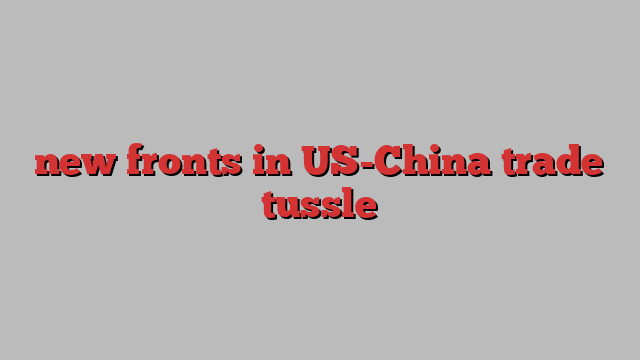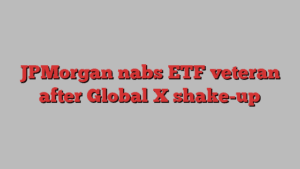
This article is an on-site version of our Disrupted Times newsletter. Sign up here to get the newsletter sent straight to your inbox three times a week
Today’s top stories
Russian President Vladimir Putin said his country was prepared for a nuclear war and that testing could resume on a new generation of weapons. Ukraine has stepped up drone strikes on oil refineries deep inside Russia, in what officials say is an intensifying effort to hit the country’s economy.
The UK economy returned to growth in January as the services sector fuelled a 0.2 per cent rise in GDP. The growth raises expectations of the UK coming out of recession in the first quarter, giving a much-needed boost to embattled Prime Minister Rishi Sunak.
Sunak is making an attempt to block the takeover of the Telegraph by Abu Dhabi-backed RedBird IMI by proposing changes to legislation currently going through parliament to, in effect, prevent any foreign state from owning or having influence or control over a British newspaper.
For up-to-the-minute news updates, visit our live blog
Good evening.
TikTok, shipbuilding and the solar industry are the latest flashpoints in the simmering US-China trade tussle, which is rapidly moving up the political agenda ahead of America’s presidential election in November.
The House of Representatives today voted overwhelmingly to approve a bill that would ban American app stores from distributing TikTok unless its Chinese owner ByteDance divested the video-sharing platform. President Joe Biden said he would support the bill, which now passes to the Senate. Proponents argue that the app could be used to exploit Americans’ data or become a national security risk by allowing backdoors to be built into US networks.
The American solar industry, meanwhile, is in uproar over cheap Chinese solar panels, which have helped halve global prices in the past year: a boon for renewable energy developers but a threat to domestic manufacturers as they try to construct a native supply chain fit for the green transition.
China doubled production capacity last year and now makes three times more panels than global demand, according to the International Energy Agency and Wood Mackenzie. In response, North American manufacturers say they are cutting expansion plans, despite the generous incentives on offer from Biden’s Inflation Reduction Act, the landmark US climate law.
“The IRA subsidies are hugely lucrative, but they’re still not enough to compete against cheap imports,” said one analyst, adding that a “new protectionist measure” would be necessary to make US manufacturing competitive.
The chipmaking industry has been the one of the most high-profile examples of rising tensions between the two countries, but the fallout is affecting the sector worldwide. South Korea’s Samsung and SK Hynix, the world’s leading memory chipmakers, have stopped selling used chipmaking equipment lest they fall foul of US export restrictions, with used machines being stored in warehouses instead of being put on the secondary market.
US help for the Philippine chip sector is the latest move from Washington as part of efforts to add more economic engagement to its military and security partnerships in the region.
It is shipbuilding, however, that has become the latest and potentially most important battleground.
The United Steelworkers union has hit out at Beijing’s “predatory” trade practices with claims Chinese shipbuilders have benefited from protectionist policies such as state-run bank loans and tax breaks. Over the past two decades, China has gone from producing 12 per cent of global commercial ships by tonnage to more than 50 per cent in 2023, according to one maritime consultancy. It also dominates shipping logistics, giving its Logink supply chain platform free to ports around the world.
As Rana Foroohar’s Big Read explains, the case has dramatic global implications, not just in fuelling trade tensions but increasing the focus on Beijing’s growing military might and the massive commercial shipping industry that underpins it.
It also, says Foroohar, raises questions about America’s ability to reindustrialise in strategic sectors and its ability to continue to police global shipping lanes when it no longer has the industrial capacity to build its own ships.
Need to know: UK and Europe economy
UK wage growth continued to slow in the three months to date, according to official data that confirmed the Bank of England’s view that inflationary pressures were easing.
The UK cost of living crisis has not gone away, however, with new data showing mortgage arrears hitting a 7-year high and the water consumer watchdog warning that suppliers’ plans to raise bills by up to 70 per cent over the next five years were “unaffordable” for most households in England and Wales.
The UK’s Competition and Markets Authority is taking aim at the private equity-dominated veterinary market. The sector has consolidated rapidly over the past decade and concerns have grown that pet owners may be overpaying for medicines.
MPs launched a probe into the health risks from abandoned Welsh mines after an FT investigation highlighted the dangers from harmful metals leaking into the environment from some sites.
Brussels is set to bring in strict rules on food packaging with a de facto ban on the use of most plastic recycled outside the EU after a last-minute push by France to amend a flagship law.
Need to know: Global economy
US inflation unexpectedly rose from 3.1 to 3.2 per cent in February, posing a fresh problem for the Federal Reserve, which next week decides whether to cut rates from their 23-year high of 5.25 per cent to 5.5 per cent.
Haiti’s Prime Minister Ariel Henry said he would resign once a transitional council had been created to run the Caribbean country after it was overrun by street gangs.
Somali pirates seized a Bangladeshi ship carrying coal to the United Arab Emirates, underlining the growing risks for commercial shipping as global naval forces focus on the threat from Houthis in the Red Sea area.
China is scrapping a clutch of infrastructure projects in indebted regions as it tries to balance a need to save money with its target for economic growth. The future of “communist capitalism” is the subject of the latest column from chief economics commentator Martin Wolf, who tackles the question: Is Xi-ism killing Deng-ism?

Divisions between rich and poor countries on the sharing of genomic data on pathogens and funding for health systems during emergencies are threatening progress on a global pandemic treaty.
Nigeria has been hit by a wave of violent food looting as its economic and security crisis deepens. Food inflation passed 35 per cent at the start of the year.
Need to know: Business
Apple bowed to Brussels’ tech crackdown with approval for iPhone apps to be downloaded from developers’ websites rather than solely from the company’s App Store. US tech start-ups have cut back equity packages for new hires as they adapt to a prolonged downturn.
UK-based chip designer Arm unveiled its first chips for self-driving cars as it seeks growth beyond the mobile processors for which it is known. Electrification and assisted or autonomous driving systems are increasing the importance of software — and the chips to run it — for carmakers.
Zara owner Inditex, the world’s largest fashion retailer, reported a strong start to the first quarter after managing to lift profits and prices in 2023. The Spanish company has been shifting its focus to more stylish designs in its long-running battle with Swedish rival H&M.
As we highlighted in Monday’s DT, stock markets are having a bit of a moment. So much so that a whole “risk reset” is under way as hopes grow that central banks have succeeded in taming inflation without triggering a downturn.
Cathay Pacific recorded its highest annual profit since 2010 as the Hong Kong airline enjoyed a surge in demand following the end of pandemic restrictions.
The global art market hit the buffers in 2023, falling 4 per cent to a three-year low of $65bn, according to a new report that found even the wealthy “are not immune to disruptive financial, social or political changes”.
The World of Work
Japanese workers have secured their biggest pay rise in more than three decades, bolstering the case for the Bank of Japan to begin raising interest rates. Real wages in the country had stagnated since the late 1990s.
EU ministers ratified rules that will help determine the employment status of about 28mn “gig economy” workers, allowing them to benefit from labour rights such as paternity leave and holiday pay.
What do the best communicators have in common and how important is better listening to succeeding in the workplace? Listen to the new Working It podcast.
Some good news
Safe spaces and sponsorship programmes are providing vital schooling to displaced children and those in war-affected cities.
Recommended newsletters
Working it — Discover the big ideas shaping today’s workplaces with a weekly newsletter from work & careers editor Isabel Berwick. Sign up here
The Climate Graphic: Explained — Understanding the most important climate data of the week. Sign up here
Thanks for reading Disrupted Times. If this newsletter has been forwarded to you, please sign up here to receive future issues. And please share your feedback with us at [email protected]. Thank you

